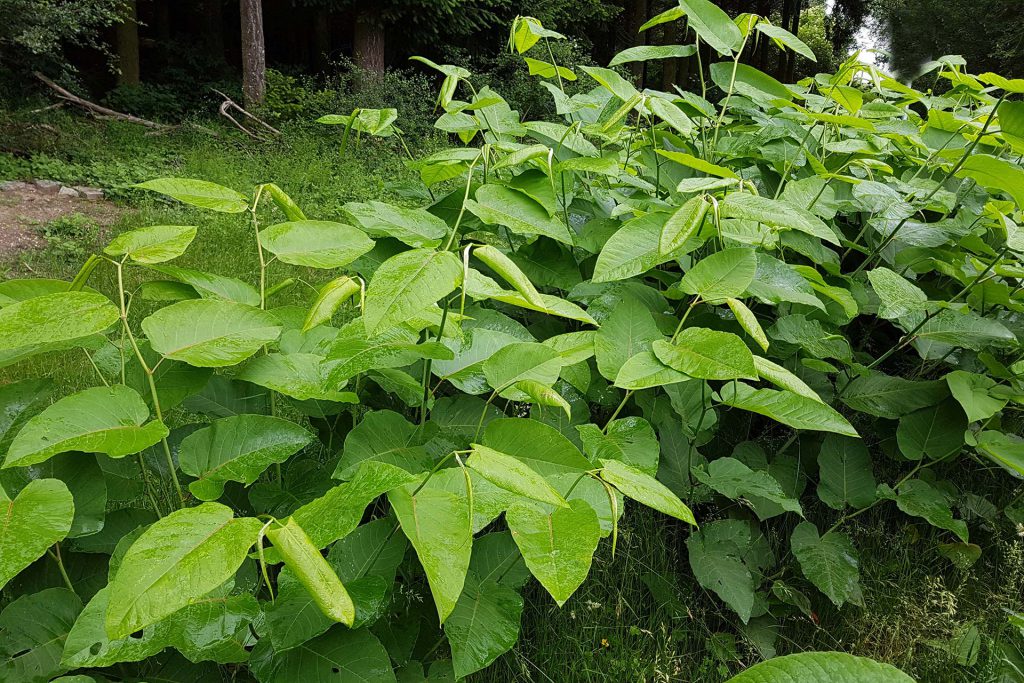Japanese Knotweed and property law: What are your rights and obligations when buying or selling?

Buying or selling a property can mark the start of an exciting new chapter, unless an invasive plant threatens the very foundations beneath your feet. Japanese knotweed, notorious across the UK, presents serious legal challenges in property transactions. Japanese knotweed law requires disclosure when transferring ownership, and failure to do so can lead to costly Japanese knotweed property disputes. If you face Japanese knotweed misrepresentation or concealment issues, consulting Japanese knotweed solicitors specialised in residential conveyancing is essential to safeguard your rights.

KEY TAKEAWAY: Should you avoid buying a property affected by Japanese knotweed?
Read on to learn how to protect yourself and ensure a secure transaction.
What are the legal risks associated with Japanese knotweed in the UK?
Japanese knotweed is an invasive, fast-growing plant native to East Asia. It spreads aggressively through underground rhizomes, causing significant damage to buildings, boundaries, and infrastructure.
Why does this plant pose problems in property transactions?
Legal disclosure duties under japanese knotweed property law UK create several challenges:
- Disclosure obligations: Sellers must declare Japanese knotweed on the Japanese knotweed TA6 form (Property Information Form). Failure to do so can result in claims of Japanese knotweed misrepresentation or fraud.
- Japanese knotweed mortgage complications: Many lenders are reluctant to provide a mortgage on properties affected by Japanese knotweed, leading to Japanese knotweed mortgage problems.
- Japanese knotweed insurance concerns: Obtaining insurance for a property with knotweed can be challenging without a proper treatment plan or indemnity insurance Japanese knotweed.
Impact on structures, property value, and UK legislation
Japanese knotweed property issues can have serious consequences for property owners, including:
- Significant damage to foundations, walls, driveways, and drainage systems
- High japanese knotweed removal cost associated with repairs and professional treatment by a qualified specialist.
- Japanese knotweed property value drop, often by up to 15%, making sales more difficult.
Under Japanese knotweed property law UK:
- Property owners have a strict legal duty to manage and prevent the spread of Japanese knotweed.
- The Environmental Protection Act 1990 classifies knotweed as controlled waste if removed improperly.
- Failure to comply with removal and management regulations can lead to substantial Japanese knotweed fines.
RICS Guidance on Japanese Knotweed
The Royal Institution of Chartered Surveyors (RICS) provides detailed RICS guidance Japanese knotweed on identifying and managing Japanese knotweed risks in property transactions. Their framework helps solicitors, surveyors, and buyers by:
- Offering clear criteria to assess the severity of Japanese knotweed infestations.
- Advising on the necessary steps for treatment and control.
- Highlighting the legal responsibilities of property owners and buyers.
- Guiding on risk management to reduce potential financial and legal liabilities.
- Supporting compliance with UK property law related to invasive species.
- Helping prevent disputes by clarifying disclosure obligations and due diligence.
What should you do if you want to buy a property affected by Japanese knotweed?
Before Japanese knotweed buy decisions, ensure you:
- Check the Japanese knotweed TA6 form for any mention of Japanese knotweed.
- Don’t rely solely on a standard survey. Japanese knotweed survey missed issues are common as Japanese knotweed hidden from survey can occur when knotweed is dormant or concealed.
- Hire a specialist for a detailed Japanese knotweed survey to avoid Japanese knotweed survey missed
- Use the expert report to understand infestation severity and treatment needs.
Legal rights if Japanese knotweed was concealed
If you discover that Japanese knotweed was concealed during the property sale, you may have several legal rights:
- Right to claim compensation: You may be entitled to compensation Japanese knotweed if the seller failed to declare the presence of Japanese knotweed. This can cover the cost of treatment, damage to property value, or other losses suffered.
- Right to seek damages for misrepresentation: If the seller falsely stated or omitted the presence of knotweed in the property information form (Japanese knotweed TA6 form), this may amount to Japanese knotweed misrepresentation. You could bring a Japanese knotweed claim UK for any resulting losses.
- Right to pursue a claim for breach of contract: If the sale contract included any warranties or specific statements about the absence of knotweed, and these prove false, you may claim against seller Japanese knotweed for breach of contract. This could entitle you to remedies including damages.
- Right to rescind the contract: In rare and severe circumstances, such as deliberate concealment, you may have the right to sue seller Japanese knotweed and ask the court to cancel the contract altogether through Japanese knotweed litigation.
- Right to pursue alternative dispute resolution: Instead of legal action Japanese knotweed through court proceedings, you also have the right to try resolving the dispute through mediation or negotiation. This can be faster and less costlythan formal Japanese knotweed civil claim proceedings.
How to obtain a mortgage when Japanese Knotweed is present?
Obtaining a Japanese knotweed mortgage on a property affected by knotweed can be challenging. To improve your chances of mortgage approval:
- Provide a professional treatment plan from a qualified specialist outlining how the knotweed will be managed or removed, including projected Japanese knotweed removal cost.
- Secure an insurance-backed guarantee that covers future regrowth or damage caused by the plant.
- Present detailed survey reports confirming the extent of infestation and ongoing treatment measures.
- Consider indemnity insurance japanese knotweed to provide additional security for lenders.
What are the legal obligations when selling a property affected by Japanese knotweed?
Selling house with japanese knotweed UK requires understanding specific legal requirements under japanese knotweed property law UK.
Disclosure via the TA6 Property Information Form
Do I have to declare Japanese knotweed when selling ? Yes, sin England and Wales are legally required to complete the Japanese knotweed TA6 form, which asks directly: “Is the property affected by Japanese knotweed?” You must declare this truthfully and to the best of your knowledge. An inaccurate or misleading response may be considered japanese knotweed misrepresentation and expose you to legal action japanese knotweed.
Selling a property with knotweed: what are your options?
Ways to reduce the risk and reassure potential buyers when Japanese knotweed selling house:
- Commission a professional survey to confirm the extent of the infestation.
- Put a treatment plan in place with a recognised contractor, ideally including a 5 or 10 year management programme.
- Obtain a Knotweed Insurance-Backed Guarantee (IBG) to provide financial protection for future owners.
- Consider taking out indemnity insurance Japanese knotweed, particularly if there’s any uncertainty regarding past presence or treatment.
How can a conveyancing solicitor help with Japanese knotweed?
Specialist residential conveyancing solicitors with expertise in Japanese knotweed will:
- Ensure you Japanese knotweed declare correctly on the Japanese knotweed TA6 form to avoid Japanese knotweed fines and Japanese knotweed misrepresentation
- Get you compensation Japanese knotweed money when sellers hide infestations or Japanese knotweed survey missed the problem. They claim against seller Japanese knotweed and handle Japanese knotweed litigation.
- Stop neighbour’s Japanese knotweed affecting my property disputes. They pursue claims for damage caused by Japanese knotweed law including structural damage and lost property
- Secure your Japanese knotweed mortgage by preparing treatment plans and indemnity insurance Japanese knotweed documents that lenders require.
- Win Japanese knotweed civil claim cases when you need to sue seller Japanese knotweed or defend against buyer claims.
- Save you from Japanese knotweed fines by ensuring compliance with Japanese knotweed property law UK and RICS guidance Japanese knotweed.
A specialist solicitor handles the legal complexities while you focus on your property transaction.
FAQs
Can Japanese knotweed affect my neighbours’ properties, and am I responsible?
Yes. If Japanese knotweed spreads from your property onto a neighbour’s land, you could be held legally liable for allowing the encroachment. This may result in civil claims, especially if the infestation causes damage or impacts property value.
Is possessing Japanese knotweed a criminal offence in the UK?
Possessing Japanese knotweed is not a criminal offence, but allowing it to spread into the wild or onto other properties can breach the Wildlife and Countryside Act 1981. This may lead to enforcement notices or fines, particularly if you fail to control the plant after warnings from legal authourities.
Can landlords or tenants be held responsible for Japanese knotweed?
Responsibility usually falls on the landowner, but lease agreements may shift obligations. Landlords may need to manage the plant under property law, while tenants could be responsible if they allowed its spread through neglect or unauthorised land use.
Japanese knotweed doesn’t have to derail your property plans, but it must be taken seriously. With the right japanese knotweed legal adviceand preparation, you can navigate the risks and protect your investment.
Need expert legal advice?
Whether you’re buying or selling, working with experienced Japanse knotweed solicitors listed on Qredible’s network can make all the difference.
KEY TAKEAWAYS:
- Japanese knotweed creates serious legal obligations in UK property transactions, requiring sellers to declare its presence on the TA6 form or face misrepresentation claims and potential fines.
- Buyers discovering concealed japanese knotweed can claim compensation from sellers, sue for damages, or pursue civil claims through litigation, while mortgage approval often requires professional treatment plans and indemnity insurance.
- Specialist japanese knotweed solicitors handle disclosure compliance, neighbour disputes over property encroachment, buyer-seller claims, and mortgage complications to protect clients from costly legal consequences.
Articles Sources
- gov.uk - https://www.gov.uk/guidance/japanese-knotweed-and-property-law
- rics.org - https://www.rics.org/uk/news-insight/latest-news/news-opinion/japanese-knotweed-advice-for-property-buyers-and-sellers/
- legislation.gov.uk - https://www.legislation.gov.uk/ukpga/1990/43/contents
- legislation.gov.uk - https://www.legislation.gov.uk/ukpga/1981/69
- citizensadvice.org.uk - https://www.citizensadvice.org.uk/housing/buying-or-selling-a-home/selling-a-home/disclosure-when-selling-your-home/
Do you need a solicitor?
Find a solicitor on Qredible in just a few easy steps















